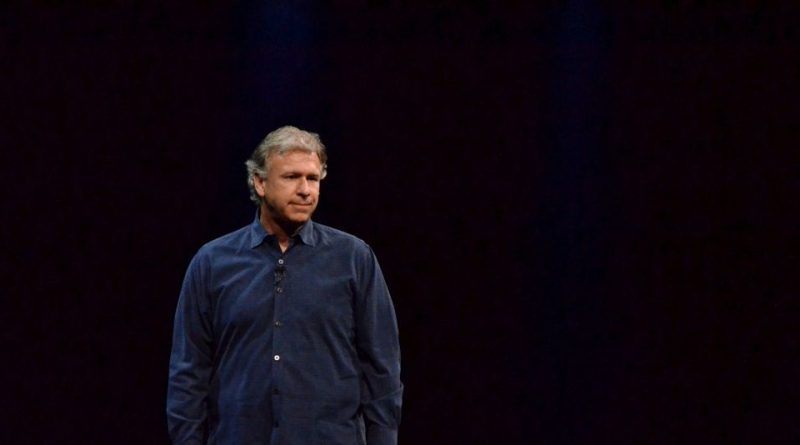At the Epic trial, Phil Schiller got away clean
Phil Schiller is one of the biggest names at Apple, and at the Epic v. Apple trial, his job was to make Apple feel small. Over two days of testimony including several hours of cross-examination, he didn’t always succeed — but he left the stand without facing some of Epic’s harshest lines of attack.
Schiller, whose title is simply “Apple Fellow,” has spent more than 30 years with the company. In his testimony, he recounted joining Apple in the ‘90s and watching Steve Jobs reorganize the then-failing computer maker. He reminisced about the iPod and name-dropped largely forgotten competitors like Handango and BlackBerry Messenger. In court, Epic Games has portrayed Apple as a scolding, disingenuous bully that locks users into a walled garden and gets mad at cartoon bananas. Schiller countered with an iOS product showcase and Apple history lesson, and Epic didn’t do much to stop him.
The iPod bit was a great encapsulation of Schiller’s time on the stand. As my colleague Liz Lopatto notes, Schiller famously served as Apple’s longtime marketing head. But at the prompting of an Apple lawyer, Schiller mentioned on Tuesday that he’d also helped invent the iPod clickwheel — one of Apple’s most distinctive hardware designs. And why, Apple’s counsel asked, was a marketing executive working on hardware design? “Product marketing works hand-in-hand with engineering on all of our projects,” Schiller explained. Different parts of Apple simply aren’t siloed into neat divisions; it’s one tight-knit company that makes a many-featured product.
That anecdote buttressed a more legally pertinent claim: because of this management system, Apple allegedly has no idea how much the App Store makes.
One Epic-paid expert witness has pegged Apple’s operating margins between 70 and 80 percent, something Epic calls evidence of monopoly power. Epic used one of Apple’s PR statistics to estimate the App Store made $20 billion or more in commissions by 2017. Schiller didn’t dispute the number. But he said Apple never calculated its overall profitability.
“We don’t deny that it likely is. It’s just that we haven’t managed the business that way,” Schiller said of the App Store. He rattled off iPhone features that require lots of work and benefit App Store developers, but don’t involve spending money on the store itself. Epic attorney Katherine Forrest was incredulous: “Apple can do accelerometers, and machine learning, and have some of the most sophisticated technology around, and it can’t figure out if the App Store is profitable — is that what you’re saying?” Schiller, however, never changed his story.
Apple used Schiller to put a new spin on Epic’s other evidence against it. Epic has cited a 2008 message where he said opening up iOS would mean “throwing out the whole plan” for the operating system. But where Epic described that plan as a single monopolistic gambit, Schiller says he was just describing the straightforward goal of a central App Store.
“You keep going back to that sentence referring to ‘the plan,’ as if there was one special plan that we referred to,” he complained at one point. Where Epic has pointed out phrases like “lock-in” and seeking “stickiness” on iOS, Schiller emphasized that the “stickiness” involved trying to add features that would discourage phishing. “If there’s any plan here, it’s simply to come up with new features to help protect users from security and privacy scams.”
Some choices are tougher to spin as fair-minded altruism. One court filing suggests Apple kept iMessage off Android to discourage switching ecosystems, and another recounts a list of sweetener deals that Apple discussed offering Netflix, despite claims to not favor individual developers. iMessage and the App Store play a huge role in consumer technology, and Epic’s counsel had a chance to push Schiller on them, helping the rest of us better understand how Apple makes these calls.
But mostly, Epic… just didn’t. Cross-examination touched on topics like iMessage, but Epic’s counsel favored exhaustive readings of policies and lists that could show Apple in an unfavorable light, including every time it mentions relying on open source software and the search results for “BDSM” on the App Store. Little of this related to Schiller himself, although we did glean details like his favorite Fortnite skins (Rogue Agent and the New England Patriots), his use of Reddit (“I tried it once”), and whether knows what Pornhub is (allegedly, no.) And while Schiller occasionally sounded frustrated, he stuck to his central claims: the App Store can’t be carved out or measured, and even if it’s made Apple rich, it’s helped everyone else as well.




